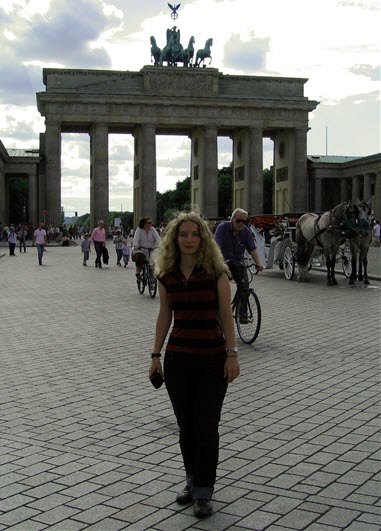Recently the German Academic Exchange Service (DAAD) has initiated several new programs to enhance academic exchange between Canada and Germany for science and engineering students.
- RISE (Research Internships in Science and Engineering):
These scholarships enable Canadian undergraduates to realize a research project at a German university or research institution during the summer months. Their mentors, with whom they closely cooperate, are Ph.D. students, thus ensuring a good integration within the research team. This is a wonderful opportunity to combine study abroad with a real world research experience. The internship offers will be posted on their website in Fall 2013. - RISE professional:
This program addresses recent graduates, master and Ph.D. students. They are invited to intern with a company in Germany during the summer months. The students can apply for up to three projects out of more than 200 offers. The internship provides a hands-on experience, imparts important professional skills and helps to develop a professional network – all this while experiencing life in Germany, one of the world’s most important scientific and economic power houses. The internship offers will be posted on their website in Fall 2013.
Nina Kudryashova - 2010 DAAD Intern
When I first heard about the RISE program back in August 2009, I instantly knew that it would be perfect for me.
On the first day of my internship, my supervisor and I met up and had a long discussion concerning what I would do during my time in Bochum. The main goal was to write a code implementing a model for neutrino production in Gamma Ray Bursts (GRBs), which are very high energy astrophysical phenomena. The research group I was to work with is part of the IceCube collaboration - an international project located at the South Pole. IceCube is a kilometer scale neutrino telescope that can be used for purposes ranging from Dark Matter search to Active Galactic Nuclei emissions study. It was extremely beneficial to me to learn C++ and ROOT, a package often used in particle physics for simulation and graphing purposes. As an undergraduate, one is not necessarily exposed to the tools used in graduate school, and, as my supervisor told me, people often have a hard time when they begin their Master’s or PhD, since starting a research project while learning new software can be challenging.
In general, the atmosphere of the working space was amiable and rather informal (as is often the case in academia), but everyone was doing their job without being reminded to. I had a lot of freedom in how I managed my time at work. If I got stuck on some piece of code that just refused to work, I would switch to reading a paper on neutrino emissions or designing the group website (another one of my tasks). Whenever I had any problems or questions, my supervisor was there to help or suggest potential solutions. From my first days in Bochum, I felt very fortunate to be a member of this vibrant research group.
The research environment in Germany is pretty similar to the one in Canada - the division of tasks, the group meetings, the possibility to ask questions is something I have encountered before. However, in Germany, universities have more links to companies and industry than in Canada. This may not be very obvious in Astrophysics, but having visited a few other laboratories at Ruhr Uni and elsewhere, I’ve seen that scientists are often looking for applications of their research that could be sought after in industry. In addition, Germany seems to be really serious about international research cooperation – a fact supported by the whole idea of the RISE program.
During my weekends in Germany, I travelled extensively. I knew that my time was limited and was set on making the best out of it! I briefly visited Austria, Switzerland and Denmark, but mostly concentrated on Germany, since I was curious about how diverse its different parts would be. Everywhere I went, I was greatly impressed by the friendliness and willingness to help demonstrated by complete strangers, which left me no doubt that Germans are warm and kind people.
The Heidelberg RISE meeting was simply great - I found it to be a perfect mix of a scientific conference and a cultural event. The location was perfectly chosen as well - Heidelberg is without a doubt the most beautiful German city I’ve been to.
And this brings me to the main impact my RISE experience had on me - the resolution to continue my studies in Germany. Before my internship, I was still unsure whether I would like living in Germany and not just visiting it as a tourist, but now there is no doubt about it. RISE gave me an opportunity to experience everyday life as an international student, something I am tremendously grateful for.
